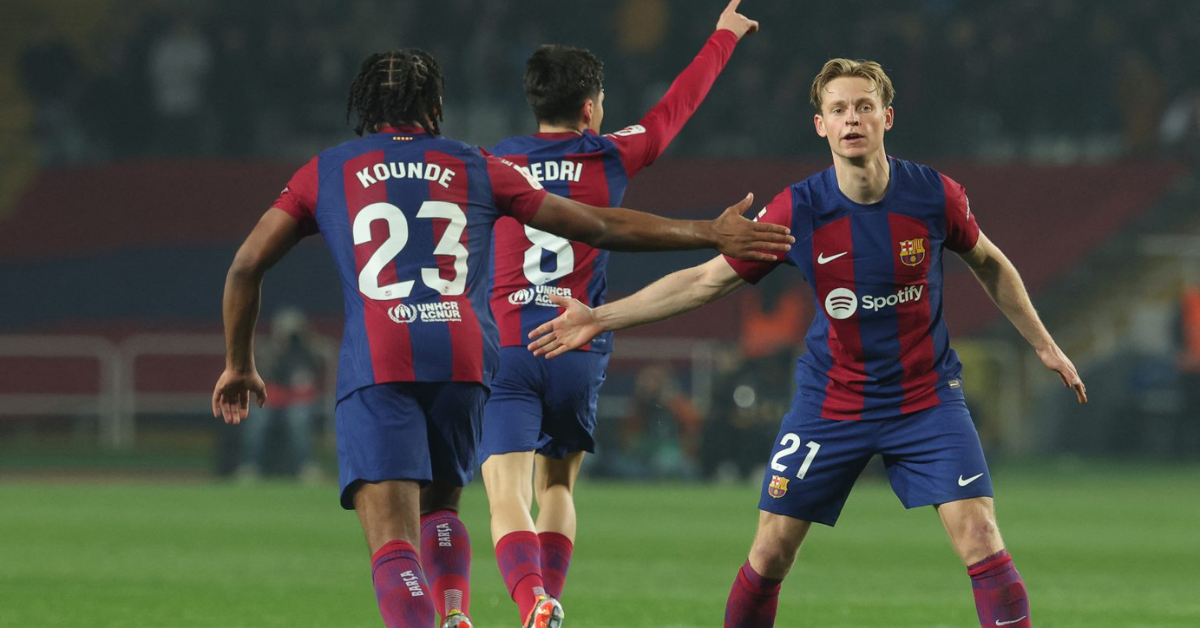Barcelona duo not willing to leave club due to their high salary


As Barcelona prepares for a pivotal summer transfer window, the club faces significant challenges in offloading players and restructuring its squad amidst financial constraints. The task at hand, although essential for complying with La Liga's 1:1 rule and alleviating wage burdens, is far from straightforward.
Barcelona's efforts to generate revenue through player sales have been complicated by various factors. While several players currently on loan, including Clement Lenglet, Ansu Fati, Sergino Dest, and Eric Garcia, are poised to depart, their potential returns may not significantly bolster the club's finances. The challenge lies in identifying high-value assets who are both marketable and open to leaving the club.
Amidst the restructuring, Barcelona remains steadfast in retaining certain key assets deemed integral to the squad's future. Players like Pedri, Gavi, Ronald Araujo, and Lamine Yamal are deemed untouchable, reflecting the club's commitment to nurturing young talent and building a sustainable foundation for success.
A notable hurdle for Barcelona is the presence of high-earning players who may be reluctant to leave due to lucrative contracts. According to reports from SPORT, the club faces challenges in offloading stars like Frenkie de Jong and Jules Kounde, despite receiving suitable offers for their services.
Frenkie de Jong, in particular, commands one of the highest salaries in Europe, with reported earnings nearing €40 million gross annually. This astronomical wage poses a barrier to potential suitors, as few clubs can match such financial commitments. Additionally, de Jong's contract is on an ascending trajectory, indicating that his wages will only increase in the coming seasons.
Despite the financial hurdles, Barcelona has signaled a willingness to entertain offers upwards of €70 million for Frenkie de Jong during the summer transfer window. This decision is contingent upon the Dutch midfielder's willingness to negotiate his contract terms, a pivotal factor in facilitating any potential transfer.
Managerial Perspective: Xavi's Vision
Xavi Hernandez, Barcelona's head coach, is keen on retaining Frenkie de Jong as a centerpiece of his squad for the upcoming season. The midfielder's technical abilities and tactical intelligence align closely with Xavi's footballing philosophy, making him an indispensable asset on the pitch.
Several top clubs across Europe, notably from the Premier League and Bundesliga, have expressed interest in acquiring Frenkie de Jong's services. Premier League teams, in particular, are drawn to his skill set and midfield prowess, although the financial implications of his salary remain a significant hurdle.
Bayern Munich, a perennial powerhouse in German football, continues to monitor de Jong's situation closely. However, the Bavarian club faces similar challenges in accommodating his high wage demands within their financial framework.
Barcelona's pursuit of financial stability and squad restructuring exemplifies the complexities inherent in modern football. The club's ability to navigate the transfer market while balancing wage structures and player sales will be pivotal in shaping its future trajectory.
The case of Frenkie de Jong epitomizes the broader challenges faced by Barcelona—a talented player with immense value, yet constrained by financial considerations. As the summer transfer window approaches, Barcelona must find innovative solutions to unlock player sales and facilitate strategic reinvestments that align with the club's long-term vision.
In the ever-evolving landscape of European football, Barcelona's journey serves as a microcosm of the broader financial realities shaping the sport. As stakeholders grapple with economic constraints and competitive pressures, the summer transfer window represents a critical juncture for clubs to recalibrate their strategies and chart a course towards sustainable success.